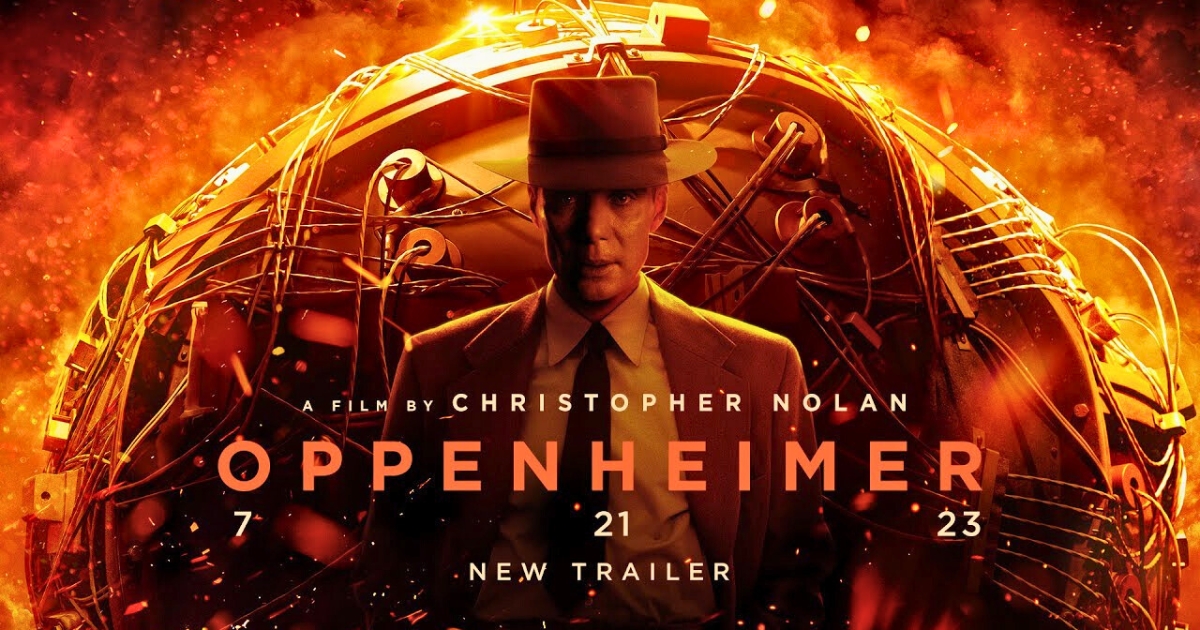Introduction
Christopher Nolan’s “Oppenheimer” is a biographical film depicting the tumultuous life of J. Robert Oppenheimer, one of the 20th century’s most prominent physicists. The film vividly portrays the impact of nuclear weapon development and the subsequent tensions of the Cold War era through the lens of a genius caught between scientific progress and ethical dilemmas.
Cast and Performance
Cillian Murphy brilliantly embodies Oppenheimer, masterfully expressing his complex inner world and intellect. His nuanced performance skillfully conveys the conflicting emotions of passion for science and fear of the destructive power of nuclear weapons.
Emily Blunt portrays Oppenheimer’s wife, Kitty, depicting a strong woman who shares her husband’s successes and struggles. Robert Downey Jr.’s portrayal of Lewis Strauss highlights the complex relationship between politics and science through his conflict with Oppenheimer.
Narrative Structure
The film employs a non-linear structure, chronicling Oppenheimer’s life from his early years through the Manhattan Project and post-war hearings. This unique storytelling approach allows viewers to deeply understand the protagonist’s psychological state and the zeitgeist surrounding him.
The Dilemma of Science and Ethics
The central theme explores the tension between scientific progress and ethical responsibility. Oppenheimer’s struggle with the decision to develop nuclear weapons sharply questions the conflict between scientific duty and responsibility to humanity.
Visual Effects and Cinematography
Nolan’s signature large-scale sets and live-action filming beautifully recreate 1940s America. The nuclear test scenes are particularly impactful, visually conveying the terrifying power of nuclear weapons.
Music and Sound Effects
Ludwig Göransson’s score masterfully expresses tension and anxiety, adding depth to the narrative. The sound effects in the nuclear test scenes audibly convey the weapon’s immense destructive power.
Historical Context
The film meticulously depicts American social conditions and scientific community trends during World War II, allowing viewers to grasp the era’s atmosphere that influenced Oppenheimer’s decisions and actions.
The Relationship Between Politics and Science
The post-war political climate surrounding Oppenheimer highlights the complex relationship between science and politics. The scenes of his security clearance hearings vividly portray Cold War tensions and the political pressures scientists faced.
Depth of Character Portrayal
Oppenheimer is portrayed not just as a brilliant scientist, but as a human with complex emotions and conflicts. His personal relationships and internal growth add depth to the story, evoking empathy from the audience.
Ethical Questions
The film raises profound questions about the benefits and threats that scientific progress brings to humanity. Through Oppenheimer’s struggles, viewers are encouraged to contemplate the development of science and technology and the future of humanity.
Visual Aesthetics and Direction
Nolan’s exceptional direction presents complex scientific concepts and historical facts in a visually appealing and comprehensible manner. Scenes depicting quantum mechanics and nuclear fission concepts are excellent examples of transforming abstract theories into concrete images.
Conclusion
“Oppenheimer” transcends the typical biographical film, offering deep reflections on scientific progress, humanity’s future, individual responsibility, societal demands, and the tension between ideals and reality through the lens of one genius’s life.
Cillian Murphy’s outstanding performance and Nolan’s meticulous direction beautifully express Oppenheimer’s inner conflicts and the era’s atmosphere. While dealing with the weighty theme of nuclear weapon development, the film also succeeds as a compelling human drama.
The film presents universal themes of science and ethics, individual and society, ideal and reality, while raising issues relevant to modern society. In our era of accelerating scientific and technological progress, what choices should we make? Through Oppenheimer’s life, each viewer is compelled to ponder this question.
“Oppenheimer” is an intellectually stimulating masterpiece that, while based on historical facts, poses sharp questions to us living in the modern age. Compelling from scientific, historical, and human drama perspectives, this film has the power to strongly resonate with a wide range of audiences.


